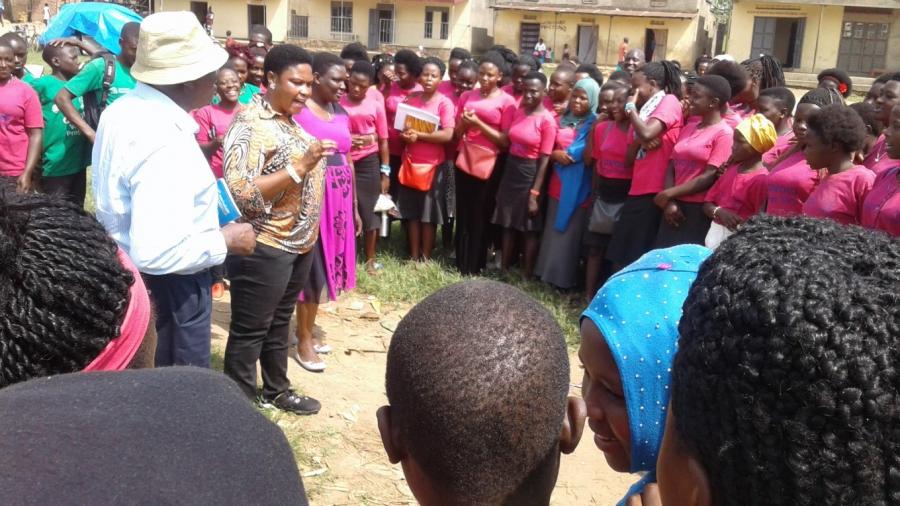
Youth should participate in the SDGs Localization
Youths in Uganda have been tasked to participate in the localization of the Sustainable Development Goals (#SDGs).
To achieve this, the youth ought to spare time, read and internalize these 17 goals and start to communicate the SDGs to their local communities. The call was made by Mr. Ben Bataringaya, the Executive Director of COVOID.
Mr Bataringaya asserts, “We would like to see even an old woman of 60 years and above with information that by 2030, we should not have any adult Ugandan not earning one-dollar day or spending 1 dollar a day. We need to see all adult Uganda above the poverty line by 2030 and with zero hunger and zero new HIV/AIDS infections etc.” Ben says youth should act as change agents in mobilizing Ugandans to support the Uganda Government to achieve the goals by 2030.
Ben reveals that rapid assessments across most regions revealed that majority of the youth are not aware of the SDGs and thus appreciated the ‘flash mob initiative’ which was organized by the SDG secretariat under the office of OPM in collaboration with Youth Coalition on SDGs. The flash mob initiative was composed of the youth and it aimed at raising awareness about the Sustainable Development Goals and to inspire the local communities across the country to take action for SDGs. He however appealed to the SDG secretariat to strengthen partnerships with regional and district-level stakeholders targeting empowerment of the youth on SDG localization. This can be achieved by targeting youth-led/focused organizations and networks as they have the potential to scale up SDG awareness through reaching many youths.
COVOID since 2016 has been committed to localization of the Agenda 2030 for sustainable development (SDGs) especially goals 1,2,3,4 7,13,15,16 using different community development models such as the Korean model of rural development (Saemaul Undong), Commercial village model, Village Savings and Loans Association (VSLA) model, Local seeds business model, and Bonga model for the youth. COVOID started the localization process through building the capacity of 293 village chairpersons, 53 Parish chairpersons, 11 chairpersons and 320 Religious leaders from Rubirizi District.
COVOID is an indigenous organization established in 2003 and has operations in South Western Uganda and the Albertine region and its thematic areas are; (a) Livelihood security-economic empowerment, education and food and nutrition security; (b) Social protection- child protection, Gender equality, human rights; (c) Health promotion –HIV/AIDS, Maternal health; (d) Environmental sustainability.
For more information/collaboration please contact them via covoidconsult@gmail.com



